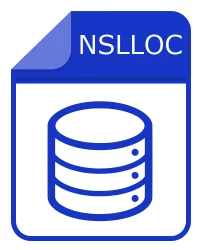Details of extension .nslloc
On this page, we're going to take a closer look at the .nslloc file extension, which is related to Mac OS X Finder NSL Location Data. We'll explain what exactly a .nslloc fileformat is and how you can use it. If you're interested in learning more details about this type of file, we'll show you where to find them. And if you ever need to convert .nslloc files into different formats, we'll give you some tips on how to do that too. Let's see the file format associated with this file extension!
Contents
We trust that our website will provide valuable information for you. If you have any questions, just ask!

Mac OS X Finder NSL Location Data
The .nslloc file extension might not only belong to a single type of file, there could be various kinds that use it. Keep in mind that files with the .nslloc extension may contain various content types. If you have helpful information about this extension, write to us!
Having trouble opening a .nslloc file?
If you want to open a .nslloc file on your computer, you just need to have the appropriate program installed. Incorrect settings for the .nslloc association can trigger this error.
Windows can't open this file:
File: example.nslloc
To open this file, Windows needs to know what program you want to use to open it. Windows can go online to look it up automatically, or you can manually select from a list of programs that are installed on your computer.
To change file associations:
- Right-click a file with the extension whose association you want to change, and then click Open With.
- In the Open With dialog box, click the program whith which you want the file to open, or click Browse to locate the program that you want.
- Select the Always use the selected program to open this kind of file check box.
Supported operating systems
Windows Server 2016/2019/2022, Windows 7, Windows 8, Windows 10, Windows 11, Linux, Mac OS X, macOS, iOS, Android
